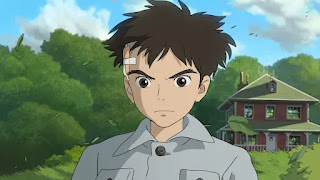When most people think of the 1936 Olympics, they probably remember how Jesse Owens' four Gold Medals helped undermine Hitler's insistence on Aryan supremacy -- unless, that is, they happen to have read Daniel Brown's The Boys in the Boat: Nine Americans and Their Epic Quest for Gold at the 1936 Olympics. Talk about telling a story in a nutshell.
In the movie version of Brown's book about an odds-defying crew team from the University of Washington, director George Clooney celebrates crew, a sport that seldom makes its way to the big screen.
A mildly novel subject, yes, but Boys in the Boat offers little by way of surprise.
Dressed as if they were extracted from a Norman Rockwell painting, the actors in Boys in the Boat row their way through an achingly familiar story that pits the working-class kids of Washington against coastal elites.
Never mind that anyone who went to college in 1936 probably was pretty far ahead of the game anyway.
Callum Turner stars as Joe Rantz, a Washington student who can't afford food or lodging -- not to mention tuition. Never fear. Abandoned by his Depression-scarred father while still a teenager, Joe knows how to fend for himself.
Finances motivate him to try crew. He joins the Washington team to support his schooling. Room, board, and tuition await those who make the team.
Two adults put a few whiskers on a story about young men.
Joel Edgerton portrays coach Al Ulbrickson, a tough-love guy who drives his charges hard.
Peter Guinness plays the dedicated craftsman who designs the boats in which the U of Washington crew races.
A bit of romance arrives when Joe meets a coed played by Hadley Robinson. And one of the crew members (Jack Mulhern) adds a colorful note as a kid who plays the piano.
In general, though, the crew doesn't include enough stand-out personalities to keep the proceedings from flattening.
Lately, Clooney's behind-the-camera work hasn't soared. The Tender Bar (2021) missed the mark, and this time, the best you can say is that The Boys in the Boat reflects plenty of workman-like competence.
The movie is at its best when the boys really are in the boat. Clooney does a good job of conveying the sport's intricacies and beauty, the strength and strategy required to compete at high levels.
Look, it would be wrong and misleading to suggest that The Boy in the Boat is terrible. It's not edgy enough for that. The movie's glide and grace are reserved for the water. On land, it doesn't do much more than stay afloat.
























